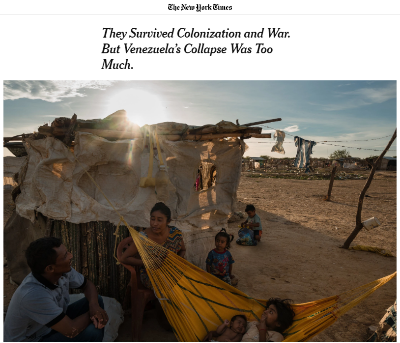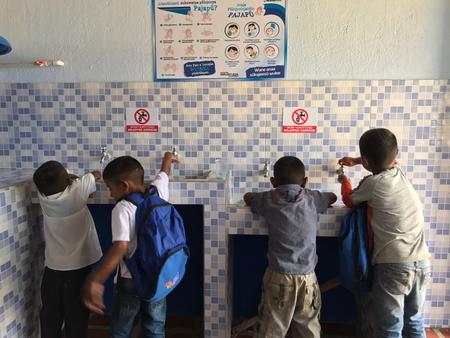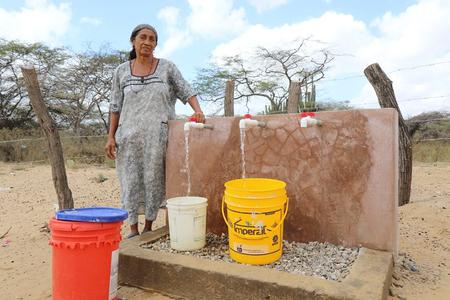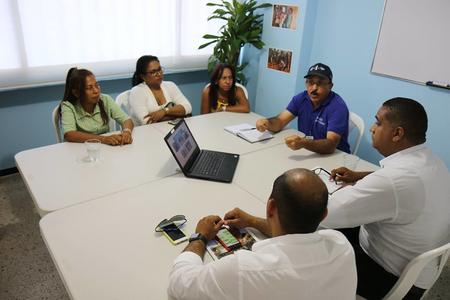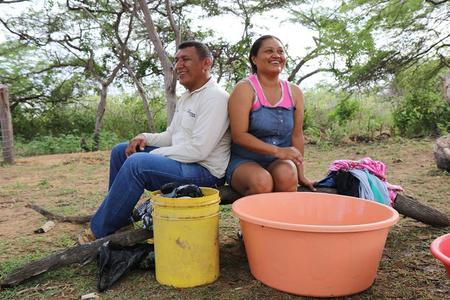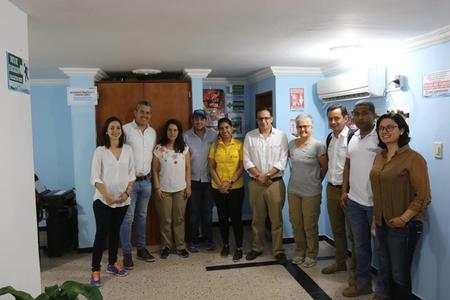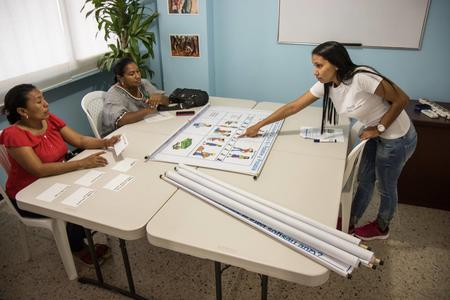Together we can unlock people’s potential with clean water, reliable toilets and good hygiene.
La Guajira, Colombia.
Our central office is located in Riohacha, the capital of La Guajira, since a large part of our work is focused in that department. Soon we will be expanding to other regions within Colombia.
About us
We are the #1 international not-for-profit organization dedicated exclusively to clean water, sanitation and hygiene. We started in 1981, with the purpose of helping people break free from poverty and change their lives for good by tackling these three essentials: clean water, reliable toilets and good hygiene.
We have programs in 22 countries and we have reached more than 29 million people around the world with clean water and more than 26.1 million with reliable toilets.
WaterAid launched its program in Colombia in early 2016 after joining forces with Aguayuda Inc., a small but committed organization with ten years of experience in the region. Our central office is located in Riohacha, the capital of La Guajira, since a large part of our is focused in that department. Soon we will be expanding to other regions within Colombia.
Intervention Area
La Guajira is a desertic peninsula in the northern tip of Colombia. According to a 2013 United Nations Development Program (UNDP) report, 30% of the population of La Guajira lives below the poverty line, of which 26% live in extreme poverty with less than $1 per day.
La Guajira is home to the Wayúu indigenous people, who make up approximately 20% of the indigenous population in Colombia. The Wayúu live in dispersed and marginalized rural communities, with very limited access to services.
It is estimated that 28% of children under the age of five suffer from chronic malnutrition and approximately one indigenous child under the age of 5 has died from causes related to malnutrition every week during the last 2 years.
Soon we'll be expanding in the department of Putumayo.
Did you see the article in The New York Times about the desperate plight of the Wayuu people of Northern Colombia and Venezuela?
In this moment of crisis, we need to do more.
Lives are at stake. We need your help. Please consider a small gift of $25 to support our critical work with the Wayuu community.
Since 2016 we’ve reached:
4,900 people with clean water
4,900 people with clean water
900 people with reliable toilets
900 people with reliable toilets
6,500 people with hygiene education
6,500 people with hygiene education
What do we do?
Our work in water, sanitation and hygiene (WASH) focuses on women, girls and rural indigenous communities. To work with these rural populations we have three key approaches.
WASH in schools and childcare centers
We work in schools and childcare centers to bring access to clean water, reliable toilets and hygiene education, so that children can continue to enjoy their childhood while having reliable and safe conditions to study in. To promote healthy hygiene habits, we have developed games, dynamics and pedagogical materials to generate learning and behavioral changes in a fun way that is also adapted to the context of the communities we work with.
WASH in indigenous, rural and peri-urban communities
We work to ensure that everyone we work with, in the communities excluded from services and infrastructure, has sustainable access to water, sanitation and hygiene. We do this by working together with communities to find efficient and sustainable solutions, using technologies appropriate to the environmental and sociocultural context.
Building alliances for sector strengthening
We build alliances with diverse stakeholders to coordinate efforts and improve the WASH situation in marginalized communities in Colombia. By working together, we can foster local, sustainable and resilient development.
Who are our allies?
Local and departmental governments, national government entities, NGOs, universities, research centers and the private sector.
There is still work to do!
Many people in La Guajira and other parts of Colombia are still excluded from sustainable access to clean water and reliable toilets.
How can you get involved?
Meet our team!
All the work we do in Colombia would not be possible without the dedication of our team, the motivation of our communities and your support.
The WaterAid Colombia team is small but powerful. With only 6 people on the team, the Colombia program has already managed to bring clean water to more than 3,000 people since 2016, and this is still only the beginning. Be it in the field doing workshops or forming alliances at a national level, WaterAid Colombia is always working to ensure that the voices and needs of rural communities are heard and addressed.




